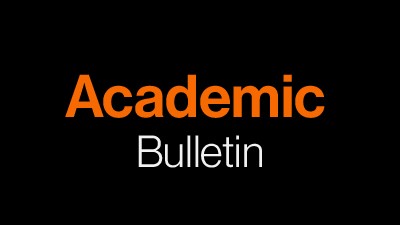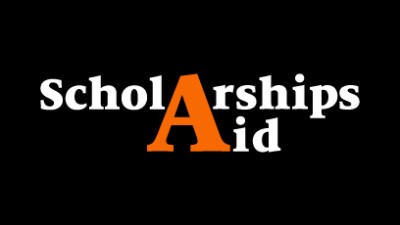
Charles Border
Associate Professor
School of Information
Golisano College of Computing and Information Sciences
Office Location
Office Mailing Address
102 Lomb Memorial Drive Rochester, NY 14623
Charles Border
Associate Professor
School of Information
Golisano College of Computing and Information Sciences
Education
BA, State University College at Plattsburgh; MBA, Ph.D., State University of New York at Buffalo
Areas of Expertise
Computing Education
Security and Privacy
System administration
Spyware
Networking
Cloud computing
Select Scholarship
Peer Reviewed/Juried Poster Presentation or Conference Paper
Border, Charles. "Development of a Configuration Management Course for Computing Operations Students∗." Proceedings of the Consortium for Computing Sciences in Colleges Eastern Division. Ed. George Dimitoglou. Arlington, Virginia: ACM.
Invited Keynote/Presentation
Border, Charles. "DevOps and the Future of System Administration Education." USENIX SESA. USENIX. Boston, Massachusetts. 6 Dec. 2016. Conference Presentation.
Border, Charles. "Virtualization Systems Architectures." Summit of Educators in System Administration. USENIX. Seattle, Washington. 11 Nov. 2014. Conference Presentation.
Border, Charles. "Advanced Storage Architectures." Summit of Educators in System Administration. USENIX. Seattle, Washington. 11 Nov. 2014. Conference Presentation.
Journal Paper
Charles, Border,. "An investigation of learning outcomes for MSc programs in Network and System Administration." Journal of Education in System Administration. (2015): 10-24. Web.
Border, Charles and Kyrre Begnum. "Educating System Administrators." :Login 39. 5 (2014): 37-43. Print.
Currently Teaching
ISTE-140
Web & Mobile I
3 Credits
This course provides students with an introduction to internet and web technologies, and to development on Macintosh/UNIX computer platforms. Topics include HTML and CSS, CSS3 features, digital images, web page design and website publishing. Emphasis is placed on fundamentals, concepts and standards. Additional topics include the user experience, mobile design issues, and copyright/intellectual property considerations. Exercises and projects are required.
ISTE-230
Introduction to Database and Data Modeling
3 Credits
A presentation of the fundamental concepts and theories used in organizing and structuring data. Coverage includes the data modeling process, basic relational model, normalization theory, relational algebra, and mapping a data model into a database schema. Structured Query Language is used to illustrate the translation of a data model to physical data organization. Modeling and programming assignments will be required. Note: students should have one course in object-oriented programming.
ISTE-430
Information Requirements Modeling
3 Credits
Students will survey and apply contemporary techniques used in analyzing and modeling information requirements. Requirements will be elicited in a variety of domains and abstracted at conceptual, logical, and physical levels of detail. Process, data, and state modeling will be applied in projects that follow a systems development lifecycle. Object-oriented modeling will be explored and contrasted with data and process oriented modeling. Individual and team modeling assignments will be required.
ISTE-605
Scholarship In Information Technology And Analytics
3 Credits
ITA graduate students are expected to make a scholarly contribution as a requirement for the MS degree. The Scholarship in Information Technology and Analytics course provides students with the fundamental skills needed to define and conduct a program of scholarly investigation in the form of a capstone or thesis project. The course focuses on skills such as academic writing, searching the literature, identifying and articulating interesting and important topics and problems, scholarship ethics, developing capstone proposals, critical thinking, and effective oral and written communication and presentation of scholarship.
ISTE-608
Database Design And Implementation
3 Credits
An introduction to the theory and practice of designing and implementing database systems. Current software environments are used to explore effective database design and implementation concepts and strategies. Topics include conceptual data modeling, methodologies, logical/physical database design, normalization, relational algebra, schema creation and data manipulation, and transaction design. Database design and implementation projects are required.
ISTE-782
Visual Analytics
3 Credits
This course introduces students to Visual Analytics, or the science of analytical reasoning facilitated by interactive visual interfaces. Course lectures, reading assignments, and practical lab experiences will cover a mix of theoretical and technical Visual Analytics topics. Topics include analytical reasoning, human cognition and perception of visual information, visual representation and interaction technologies, data representation and transformation, production, presentation, and dissemination of analytic process results, and Visual Analytic case studies and applications. Furthermore, students will learn relevant Visual Analytics research trends such as Space, Time, and Multivariate Analytics and Extreme Scale Visual Analytics.
ISTE-799
Independent Study
3 Credits
The student will work independently, under the supervision of one or more faculty advisers, on a topic of mutual interest that is beyond the depth of or not covered in other courses.
NSSA-245
Network Services
3 Credits
This course will investigate the protocols used to support network based services and the tasks involved in configuring and administering those services in virtualized Linux and Windows internet working environments. Topics include an overview of the TCP/IP protocol suite, in-depth discussions of the transport layer protocols, TCP and UDP, administration of network based services including the Dynamic Host Configuration Protocol (DHCP), Domain Name Service (DNS), Secure Shell (SSH), and Voice Over IP (VoIP). Students completing this course will have thorough theoretical knowledge of the Internet Protocol (IP), the Transport Control Protocol (TCP), and the User Datagram Protocol (UDP), as well as experience in administering, monitoring, securing and troubleshooting an internet work of computer systems running these protocols and services.
NSSA-320
Configuration Management
3 Credits
This course teaches students advanced techniques in the Perl language. Techniques include the use and construction of object oriented scripts, user administration and monitoring, file system walking and checking, and computer and network security issues.
NSSA-422
Storage Architectures
3 Credits
This course provides students with a theoretical as well as hands-on exposure to enterprise scale storage technologies such as storage area networks and network attached storage. Students will study SCSI, Fibre Chanel, IP Storage, Infiniband, and Fibre Channel over Ethernet both in lectures and labs. They will also gain a better appreciation for the importance of storage architectures in the enterprise.









